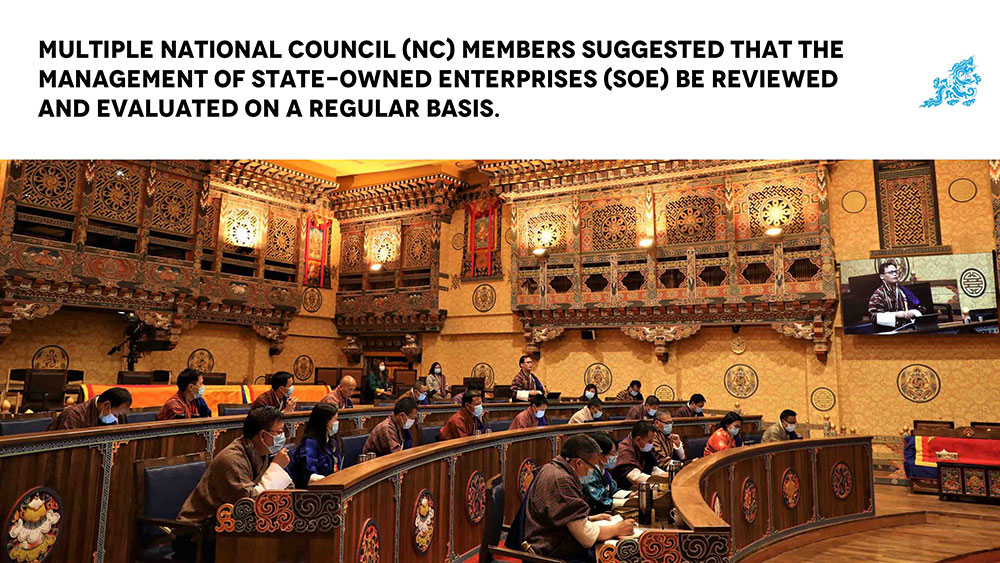For financial sustainability and impactful corporate social responsibility of the state-owned enterprises (SOEs), a majority of the National Council (NC) members yesterday suggested the need to review the management of the SOEs and evaluation of SOEs at regular intervals.
During the deliberation of the interim review report on the SOEs, eminent member Tashi Wangyel said the SOEs were established to create a greater social impact on the communities.
He suggested NC’s Natural Resources and Environment Committee who presented the report to review the management of each SOEs instead of focusing on the ownership, since management is crucial for proper functioning of these enterprises.
Records revealed that in recent years, most of the 38 SOEs in operation suffered losses with decreased revenue contribution to the government while the subsidy from the government increased. The four SOEs— Bhutan Livestock Development Corporation Limited, Food Corporation of Bhutan Limited (FCBL), Bhutan Broadcasting Service, and National CSI Development Bank have been running in constant loss.
The interim report revealed that decrease in revenue was caused by the SOEs under the agriculture ministry, which recorded a reduction of 46.7 percent within three years.
Eminent Member Phuntsho Rapten said that the committee’s review should involve cross-checking and evaluation of whether the SOEs were fulfilling their earlier mandates. “The evaluation should include the amount of subsidy received from the government, profits earned, and the number of workers with the SOEs. This would result in impactful decisions.”
The SOEs, he said, had corporate social responsibility which should be reviewed with the annual performance agreement to evaluate their social impacts that are expected to be strong. “Even if they can’t make profits, their social impact must be strong.”
Punakha’s Lhaki Dolma said that if there were duplication of roles among SOEs, for example, between FCBL and Agricultural Machinery Centre, the government should assign clear mandates for better performance and impact.
Majority of the failing SOEs attribute their failures to shortage of workers and lack of financial resources.
Some members of the House also raised the need to ensure that SOEs were not politically motivated.
Dagana’s Surjaman Thapa said that as a young democracy, there were risks of SOEs being used for political reasons by the successive governments instead of fulfilling their mandates to help people.
“Since SOEs can be politicised, we need to evaluate the government subsidy provided to the SOEs,” said NC’s deputy chairperson, Jigme Wangchuk.
Haa’s Ugyen Namgay said that there were past instances where a government used SOE to further their political interests by changing the SOE’s mandates.
To avoid such lapses in the future, he said that there should be strong rules and guidelines and suggested the committee look into the possibility of ensuring timely review and evaluation mechanism of SOEs. “If these enterprises are used by the political governments, it will be unsustainable.”
The SOEs under the finance ministry were established under sections 74 and 82 of the Public Finance Act 2007 to undertake significant commercial activities and to deliver social service. Most of the SOEs are fully owned by the government and are given government subsidies.
The Committee will present the final report in the next NC session.
By Choki Wangmo
Edited by Jigme Wangchuk


